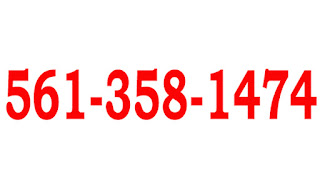When immersed in a watershed moment of history, those living it often don’t appreciate the magnitude of change on the World. WWI, the Great Depression, and WWII were watershed moments. My father, Earl Stewart Sr., was born in 1892 and was a young man during all three of those watershed moments in history. I don’t think he ever fully appreciated how much the world changed from those 3 events.
We’ve been experiencing the COVID-19 Pandemic for about 2 years. Coinciding with this is the knowledge explosion from quantum computing the “Cloud”, and Artificial Intelligence. The Internet (unheard of before 1990) offers answers to every question that a human being can conceive of. As I write this article a giant telescope is speeding toward an orbit around the sun that will show us “pictures” of the beginning of the universe, 13.7 billion years ago.
Lots of people make forecasts, but few put them in writing. I’m going out on a limb and asking that you save this article and let me know in year how many of my forecasts I got right and wrong. 😊
- Prices of new and used cars will drop substantially. As I write this article the average price paid for a new car in November 2021 was $45,872, up from $39,984 one year ago…about a $6,000 increase which is several thousands of dollars above MSRP. I predict that by the end of 2022 car prices will average MSRP, manufacturer’s suggested retail price. This will be significantly less than today, but significantly more than prices pre-covid. The average price paid for a used car now is above $29,000 up from $22,679 in 2020. Used car price will come down to about $26,000 by the end of 2022.
- Car dealers’ bait and switch advertising and deceptive sales practices will be reduced significantly. The quantum leap in consumers knowledge because of the Internet via Google et al in 2022, has increased the percentage of educated buyers as never before. With a PC and the “click of mouse”, any car buyer can learn the average, and even the lowest price charged by a dealer. Consumers can learn the dealer cost and which dealers have the better reputations for fairness and lower prices. Manufacturers who have been very reluctant to “control” their dealers are “seeing the handwriting on the wall”. With smart buyers, the dealers with the best reputations for honesty and transparency will out-sell the high pressure, bait, and switch style dealers.
- Some auto manufacturers will follow Tesla’s lead and sell cars directly to the consumer, without an independent dealer network. The only reason this didn’t happen a long time ago was due to state franchise laws enacted almost 100 years ago. Dealers have lobbied to have laws passed in all 50 states that allow only a franchised car dealer can sell a new car. It’s illegal in all 50 states for anyone to buy a car, except a Tesla, directly from the manufacturer. These laws will be challenged and overturned by some manufacturers in some states, like New York.
- Female car buyers will become the most important buyer for both auto manufacturers and car dealers. For nearly 100 years, the auto manufacturers and car dealers have been a “good old boys club”. Most of the advertising has been directed toward men. Most cars are designed and engineered for men. Even the National Highway Traffic Safety Association, NHTSA, designed safety crash tests designed to protect men, not women. Most employees, over 90%, of auto manufacturers and car dealers are men. Automotive dealer training school graduates are almost exclusively men. Thanks to the 21st century knowledge explosion, women have become more educated and capable car buyers than men. Women, by their nature, have been proven to be more careful about the car they buy and the price they pay.
- Electric cars will surge in popularity beyond everyone’s expectations. This prediction is my most personal one. Some of you know that I’m a Toyota dealer in North Palm Beach, Florida. For the last 47 years I’ve driven only Toyota products, including Lexus. Toyota builds great cars and I never saw myself ever driving anything else. My curiosity overcame my loyalty to Toyota, and I recently bought a 2021 Tesla Plaid. I can only say that driving an all-electric car like a Tesla is all it will take for you to forsake all other combustion engine powered cars. I get 350 miles on one charge when I plug the Tesla into my garage electric outlet overnight. Words can’t describe the pleasure of passing crowded, over-priced gas stations. The electric motor is more powerful, by far, than any combustion engine vehicle. There is no transmission or shifting, only one, smooth continuous acceleration. I rarely ever touch my brakes because I rely on the automatic braking when I take my foot of the accelerator. I haven’t enjoyed driving a car as much since I was sixteen years old and that’s along time ago…I’m 81 years old.
- Today’s auto manufacturers will decrease in number by 50%. The automobile as we know it today is obsolete. The car of the future is all electric and totally autonomous. The strong manufacturers, like Toyota and Volkswagen will survive but most will perish. There will be mergers, acquisitions, and bankruptcies. The auto manufacturer of 2023 will become a software company. The final phase of this radical change will be the cessation of car ownership. The fastest growing form of transportation in 2025 will be ridesharing of autonomous, all electric vehicles. You’ll summon the vehicle of your choice only when you need it and pay only for that time. The vehicle will arrive in seconds (faster than you can walk to your own garage and back your car out). You’ll arrive at your destination in less than half the time it now takes. There will be no more rush hours because all cars will travel at the same high speed (100 mph or more). Traffic accidents and injuries will be a tiny fraction of what they are today.














